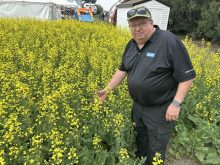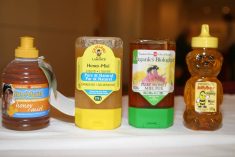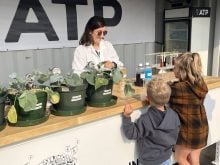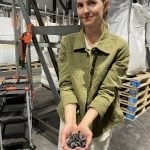SASKATOON – The University of Saskatchewan is receiving foreign aid from Brazil.
A Brazilian company donated a $40,000 seed sorter to the university’s Crop Development Centre this spring.
“It saves a lot of time and effort for our staff. They can sort seed samples without having to pick each seed individually. What took days, now takes a few minutes,” said Bert Vandenberg of the centre.
The CDC has been using the Seletron bichromatic color sorter on samples of beans, lentils, wheat, chickpeas and canaryseed. It determines discoloration, which can occur if seeds are damaged through freezing or disease.
Read Also

First annual Ag in Motion Junior Cattle Show kicks off with a bang
Ag in Motion 2025 had its first annual junior cattle show on July 15. The show hosted more than 20…
The donation is the largest unsolicited gift in the history of the centre. George Birk, of Seletron, said he has sold several sorters to seed companies in Saskatchewan and he wanted to give something back to the province and the industry.
Demand will increase
Seed companies have been buying sorters to handle lentils and specialty crops during the past few years. Vandenberg said more companies will be buying them as Prairie crop diversity increases.
The sorter works by passing individual seeds, at high speed, past two light-measuring cells which determine color differences. Those not the same as the calibrated color are then removed from the stream by a short, high-pressure blast of air. The machine is capable of sorting more than 90 kilograms of seed per hour.
















